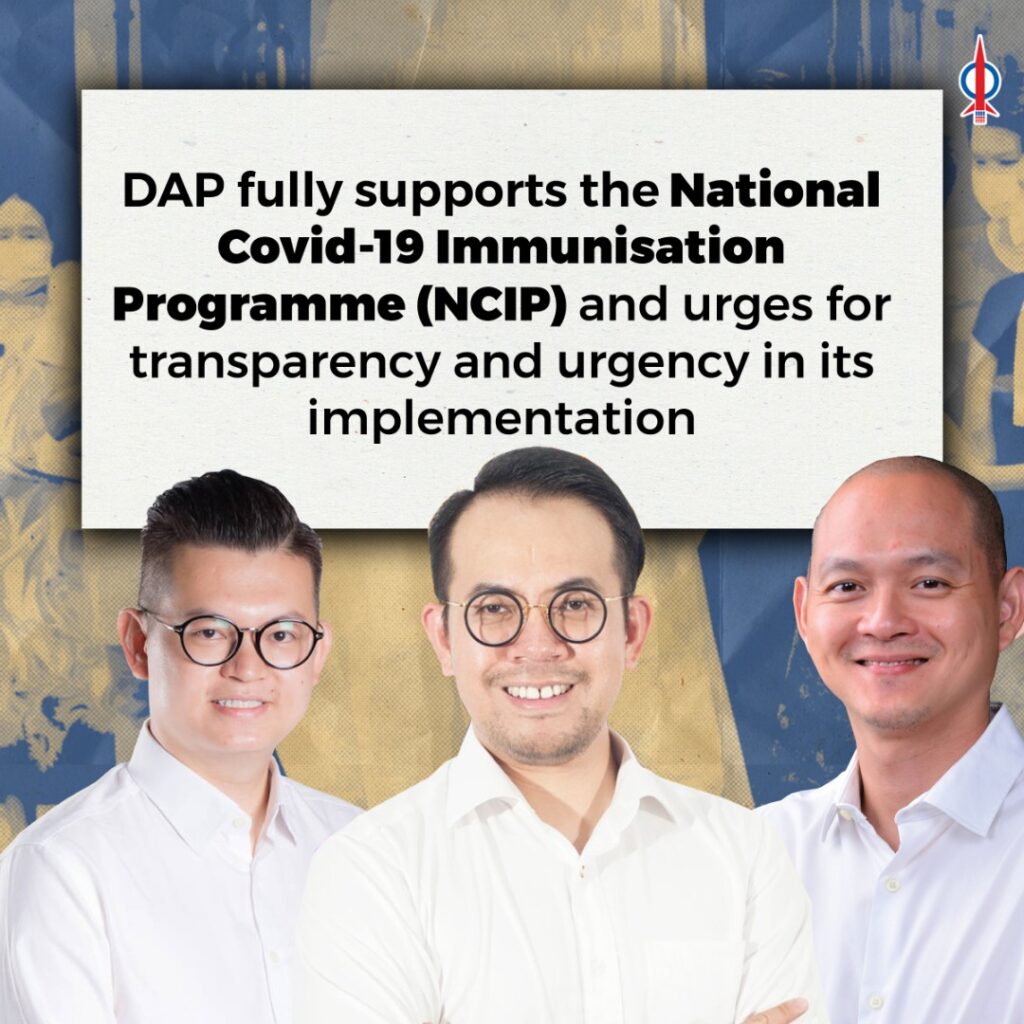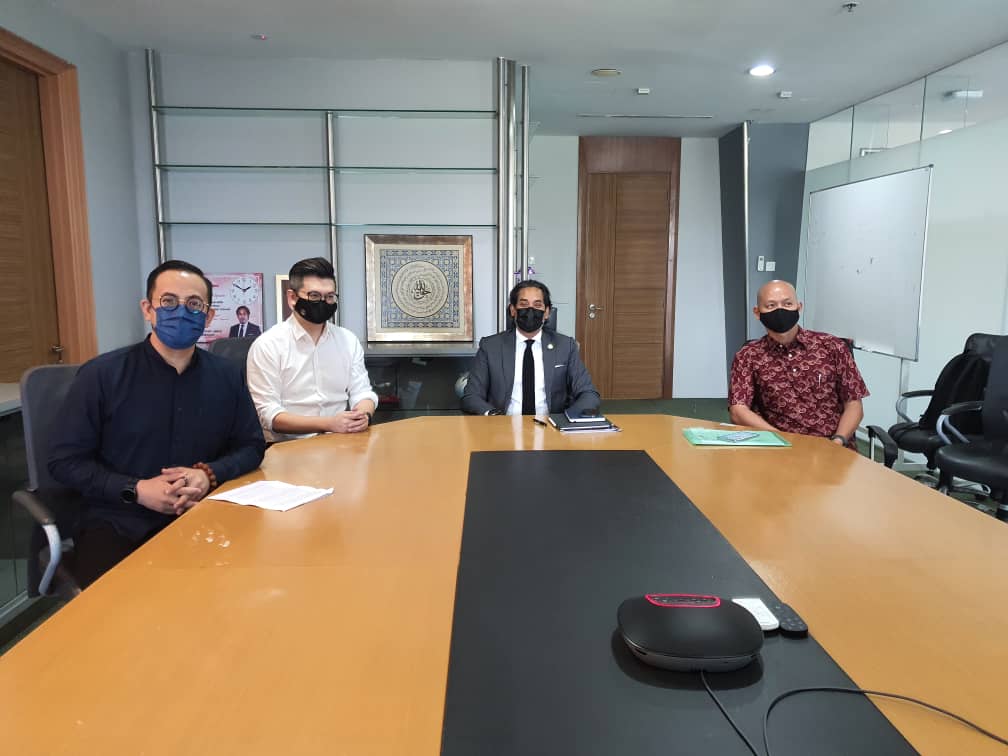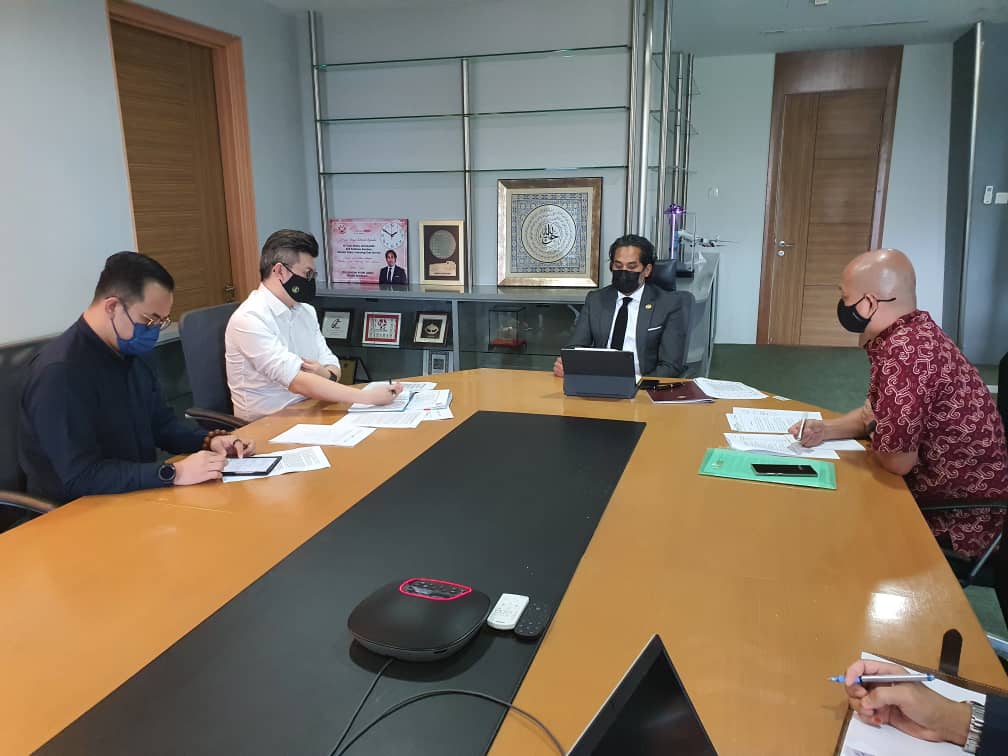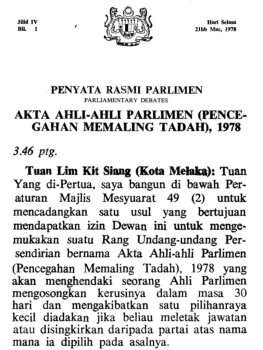Joint media statement by Dr Ong Kian Ming (MP for Bangi), Steven Sim (MP for Bukit Mertajam) and Dr Kelvin Yii Lee Wuen (MP for Bandar Kuching) on 3 May 2021:

The Democratic Action Party (DAP) fully supports the National Covid-19 Immunisation Programme (NCIP / PICK) and urges the government to accelerate its implementation in order for us to protect the health of the people and also to restore the country’s economy.
However, we express concerns over the lack of transparency with regards to the government’s recent decision to pass an emergency ordinance allowing it to tap into the National Trust Fund (KWAN) reportedly for the procurement of vaccines and related expenditures.
The RM 5 billion that is being used represents almost 30% of the estimated RM17.4b within the Fund, and that is why utmost transparency and accountability is needed to instil public confidence, avoid wastage, mismanagement, and abuse.
Extraordinary times call for extraordinary transparency.
The fact that the government needs to tap into the National Trust Fund also points to the need for the Parliament Accounts Committee (PAC) to reconvene since when the Vaccine rollout Coordinating Minister, Khairy Jamaluddin and Health Minister Adham Baba, first met the PAC on the 5th of January, 2021, there was no mention of using funds from the National Trust Fund up to the tune of RM5 billion to fund the procurement and rollout of the various Covid-19 vaccines. For the PAC to reconvene, the emergency must be lifted and parliament must be allowed to sit again.
Without the option of parliament or the PAC as a channel to ask more detailed questions with regards to the spending on the NCIP / PICK, we secured a meeting with Minister Khairy Jamaluddin to get a clearer breakdown of the RM 5 billion expenditure for proper scrutiny as well as raise certain pertinent issues to improve the progress of the NCIP / PICK.

Among the issues pertaining to the RM5 billion expenditure allocated to the NCIP / PICK, including the procurement of vaccines, are the following:
- We take note that up to RM1.5 billion has been allocated for the rollout of the Covid-19 vaccine including setting up various large scale vaccination sites across the country (“Pusat Pemberian Vaksin (PPVs)”) for RM280 million, Sanitation and Cleaning Services (RM100 million), Community Outreach and Advocacy (RM55 million), just to name a few examples. We want to know, how many of these large scale contracts were awarded via open tender? Did they go through the usual e-perolehan process or were they awarded via directo negotiation or limited tender? Given the scale of the expenditure involved, it is only right that MPs are able to ask for this information to be disclosed, as we would have requested were parliament in session.
- At the same time, we question the total amount allocated for “allowances” (the word “saguhati” is a term used in the Ministry of Finance terminology and actually means “allowances”) for both medical and non-medical volunteers amounting to RM347 million. There has to be a breakdown on how many volunteers this involves and the expected allowances to be paid out per volunteer including civil servants who will be stationed at the PPVs.
- Furthermore, we question the total allocation for Data Integration & Appointment System, and post-inoculations evaluations which amounts to a total of RM85 million. We request a clear breakdown of such expenditure and question the need for such a sum especially since there is already the existence of MySejahtera, and other existing dashboard and database.
- In addition, we want to raise the issue of how the RM55 million for community programs and vaccination outreach is being used especially since the total registration rate is approximately 39% of the targeted population (as of the 1st of May) or 9.5 million persons. What other methods is the Ministry planning to roll out in order to incentivize the rest of the population to register for the vaccine?
- On top of that, based on the World Health Organisation (WHO) estimates from “COVAX Working Group on Delivery Cost, the recommended budgeting for both innovations and post-introduction evaluations for a total of 1 billion doses or a 500 million population is at USD 91.2 million. This covers data integration, digital micro-planning, appointment systems, post-immunisation evaluation and others (items 6+9 in the expenditure chart released by the Ministry.) If we take that into account in our local context and our country’s target of vaccinating 28 million (80%) of our population, the total recommended cost for such items should only be at RM 21.45 million, which is almost a quarter of the amount allocated based on the public statement released by the Ministry.
That is why we question the sum allocated and ask for greater transparency contractors involved, job scope and deliverables to avoid risk of abuse and over-profiteering.
With regard to vaccine administration and deployment, we have the following questions:
- We want to know why is it that so many high-risk groups including the elderly and those with comorbidities that have registered earlier are not getting their appointment dates especially in the Klang Valley? This includes safeguards to ensure State Governments do not overstep and prioritise groups outside of the recommended groups just like what happened in Pahang. We also suggested improvements on notifications especially for the elderly group that may not be too familiar with the MySejahtera app.
- We also want to know the government’s position on introducing parallel and multi-streams vaccination drive by including both the State Governments and the private sectors. The Federal Government should also just allow but offer assistance to the State Governments and Private Sector to procure additional vaccines especially from the international manufacturers to accelerate the process in order for us to achieve our target herd immunity. We hope that the issue of state governments procuring supplies of the vaccines for themselves to deploy can be expedited by the federal government once the official request has been sent by the respective state governments, including the most populous state in Malaysia, namely Selangor and also the largest state in Malaysia in terms of land size, Sarawak and the most important state in terms of E&E exports, namely Penang.
- We also want to know the government’s strategy on improving and enhancing logistical improvements including better transportation of vaccines from Vaccine Storage Centres (PSV) to the selected Vaccine Distribution Centres (PPV) especially the rural areas of Sabah & Sarawak.
- In addition, we want to know the latest absentee rate figures and the amount of Pfizer and Sinovac vaccines which have been “waste” because those whose appointments had been set did not show up and not enough volunteers to take those shots could be contacted in time.
- The government has decided to rebottle Sinovac vaccines locally after buying the stock in bulk from China. While this decision was taken to promote technology transfer, rebottling the vaccine locally is totally different from manufacturing the vaccine locally. Rebottling involves only the packaging of finished goods and not the production of the goods itself. In fact, rebottling may affect the speed of production, integrity of the vaccine and even create unnecessary layers of middle-men. Earlier news reports have stated that locally manufactured vaccines can be ready and supplied to hospitals by the end of March. This does not seem to be happening. Will the government continue to rebottle Sinovac, and other vaccines in the future, locally? How much additional cost this involves instead of buying the finished goods directly from source manufacturers? And what is the status of the government’s plan to manufacture vaccines locally?
- Finally, we also want a full explanation on the challenges faced by people wanting to register to take the Astra Zeneca vaccine on a voluntary basis. Especially important is what the government will do to enhance this system for the next round of AZ vaccines when they arrive in Malaysia, hopefully in June or thereabouts.

We urge for the Prime Minister to reconvene Parliament to allow such important decisions to be debated and scrutinised. The Parliamentary Select Committee should also be allowed to provide parliamentary oversight over the rollout and approach towards the pandemic. During this pandemic, where billions of public funds of money is being used, it is of utmost importance that all matters, procedures and financial procedures of the country are complied, to make sure that people’s money is really being spent prudently and efficiently.
We must be allowed to play an effective role in providing a ‘check and balance’ mechanism in the democratic system to the Government to promote the spirit of transparency and accountability, especially during this period. To repeat, “extraordinary times calls for extraordinary transparency”.
We had a fruitful and productive meeting with Minister Khairy today from 130pm to 2.45pm. Many of our questions were answered and the Minister also said that he would supply as much of the detailed breakdown of the expenditure items as possible. We look forward to his official reply to us and to the public.



